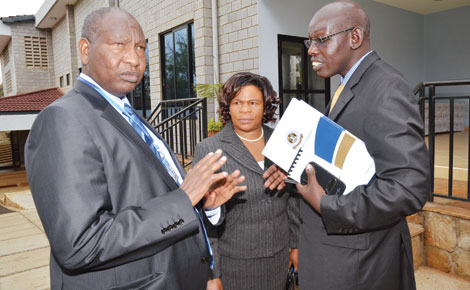×
The Standard e-Paper
Smart Minds Choose Us
 |
| TSC Secretary Gabriel Lengoiboni (left) confers with Education principal secretaries Collete Suda (centre) and Bellio Kipsang after a stakeholders’ meeting at the Kenya School of Government in Nairobi. [PHOTO: BEVERLYNE MUSILI/STANDARD] |
By AUGUSTINE ODUOR
Kenya: Teachers supplementing their monthly income by engaging in private business may soon have to revise their revenue streams.